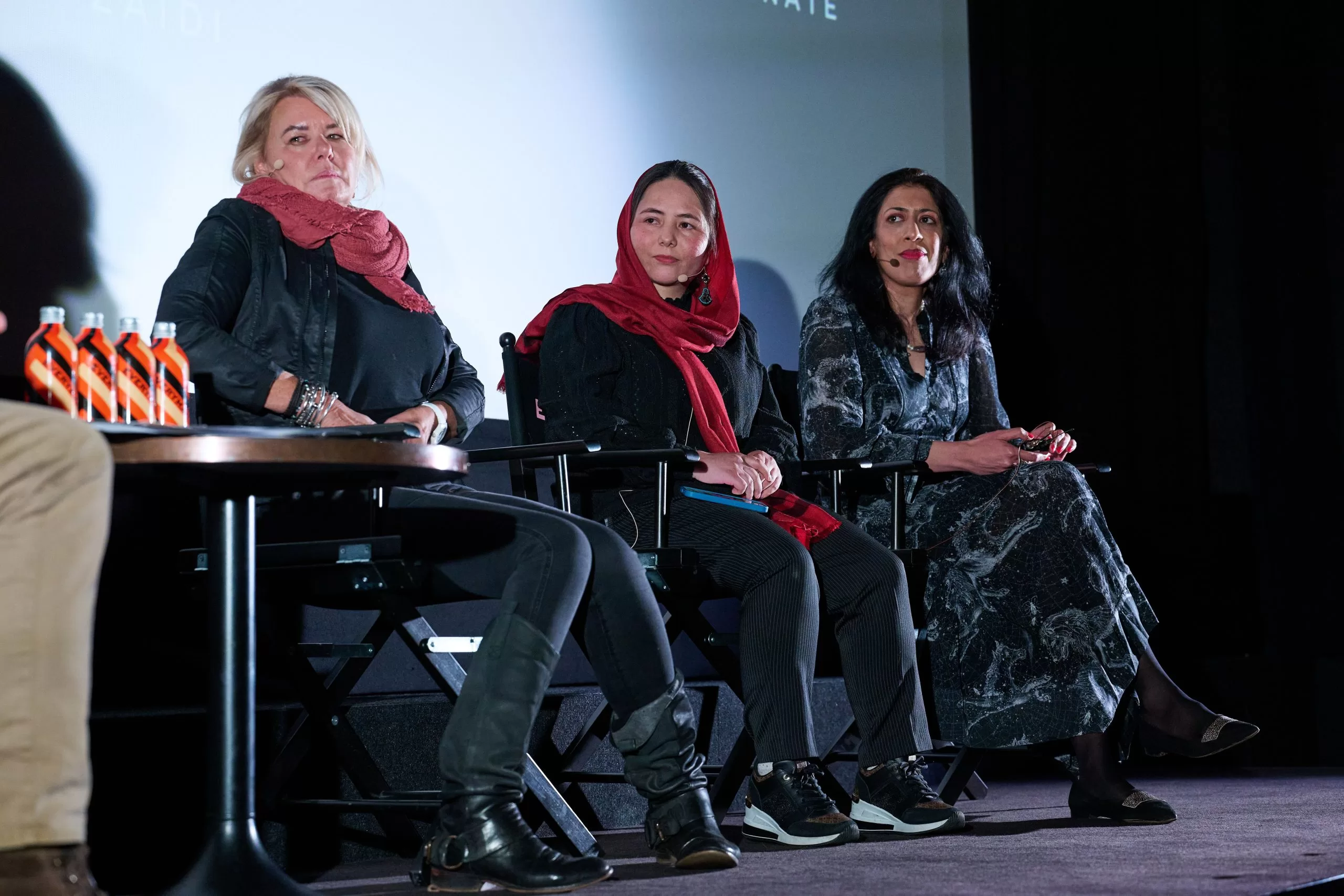Last Thursday, human rights organisation Anotherway Now hosted a screening of the Sky News documentary ‘Defying the Taliban: women at war in Afghanistan’. This was followed by a panel discussion hosted by Index on Censorship’s Editor-at-large Martin Bright.
Part of the discussion challenged the British government to create a route for Afghan women to apply safely for asylum into the UK. Zehra Zaidi, from the advocacy group Action for Afghanistan, said people need to show they are taking up the issue with the government. She added: “We also need to show it’s not a vote loser. That it’s the right thing to do, and the compassionate thing to do. We must keep fighting.”
The first of three documentaries looking at the fight for women’s rights in the world’s most hostile environments, Special Correspondent Alex Crawford travelled to Afghanistan over a year after the Taliban takeover.
Despite being a country where women’s rights plummeted under one of the most oppressive regimes in the world, we saw young women training as gynaecologists and paediatricians, with higher-level education currently allowed for women. However, with secondary education banned for young girls and women, it’s clear this will be a rare sight in the future. With medics generally only treating their same sex in Afghanistan, a ticking time bomb awaits.
What was striking is how women operated in the underground. Crawford used her network of contacts to show us a hidden world, including a safe house in Kabul run by rights activist Mahbouba Seraj, who is a 2023 Nobel Peace Prize nominee. A rare refuge from the brutal world outside, Seraj explained she takes in abused women and girls from all over Afghanistan, adding: “The Taliban don’t want us to exist. That’s why there’s no schools or work, or why women shouldn’t be walking on the street.”
Seraj doesn’t fear the Taliban though. “I find it ridiculous, insulting and annoyingly childish. But am I scared? No”, she said.
A secret network of schools also operates across Kabul, run by volunteers who teach maths and English to a younger generation of girls.
We’re shown secret workshops where women make art out of weapons and bullets; and make beautiful dresses where they can artistically portray their tough situation. Proceeds are used to feed their families, but also gives the women the freedom to expose their treatment in a male-dominated society. However, the freedom to artistically express is no longer an option for Farida (not her real name), once one of Afghanistan’s most celebrated painters. She said: “The Taliban burnt my gallery and said you can’t work on (paint) the faces of women.
“It killed me. We are empty. Now we don’t have hopes, and we don’t have dreams.”

Postcards of artwork by Farida that was smuggled out of Afghanistan (source: Sky)
During the post-screening discussion, Crawford explained the Taliban’s hypocrisy as the official reason given for banning women from attending medical school is male/female segregation isn’t possible, but female-only medical schools are closed anyway.
Zahra Joya, an exiled Afghan journalist and founder of Rukhshana media, urged everybody to keep the conversation about Afghanistan alive after the screening. She said: “This film shows the full-scale war against women in Afghanistan. Keep them in your mind and speak up.”
Calling for a show of hands from the audience, Zaidi asked the audience if anybody knew there is currently no asylum route into the UK for Afghan women. “There is none!”, she exclaimed. “None of those women in the film can apply to the British government for asylum. Our petition alone in August had 470,000 signatures to prioritise Afghan women and girls.”
Zaidi believed the Afghanistan crisis is being purposely mixed up with the small boats’ crisis and “illegal” migration bill, so it won’t stand on its own as a genuine issue in the UK. To wrap up, she offered her dream encounter with the British home secretary.
“I like a challenge. I see myself sitting opposite Suella Braverman inviting Afghan refugees to the UK if it’s the last thing I do!”






